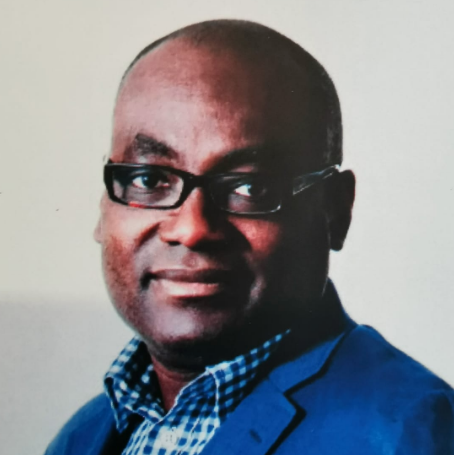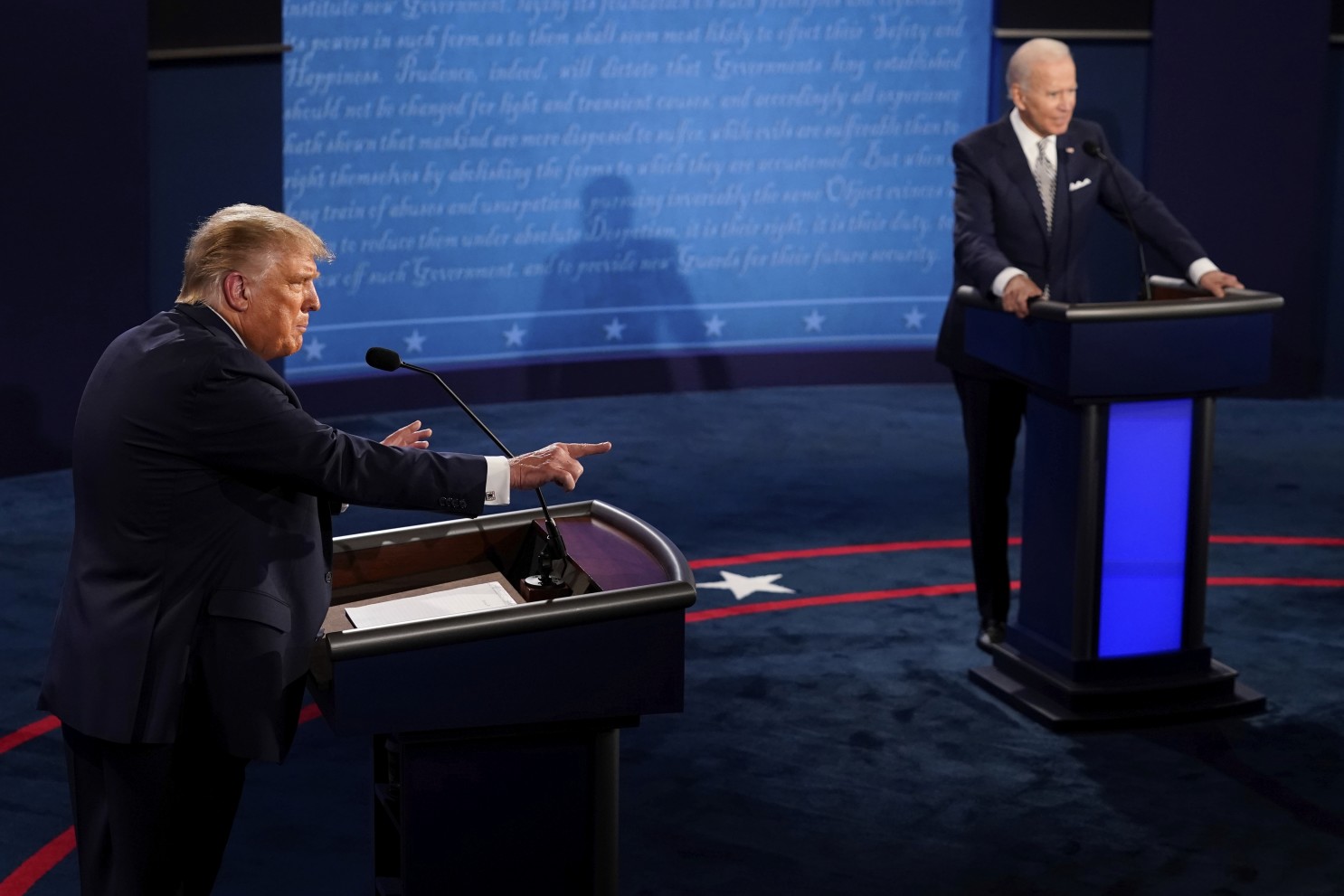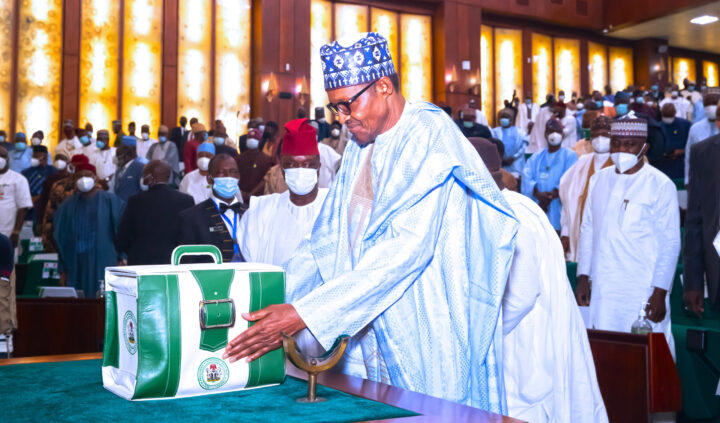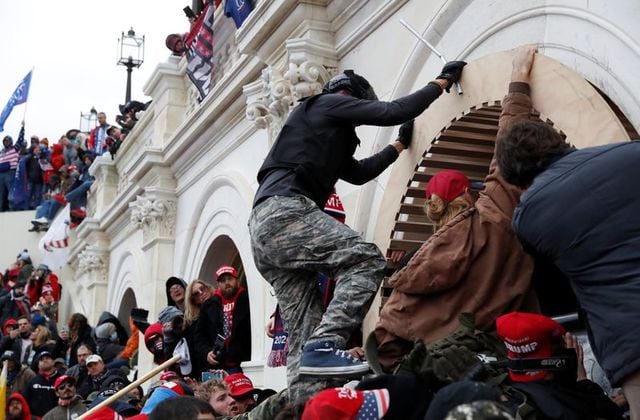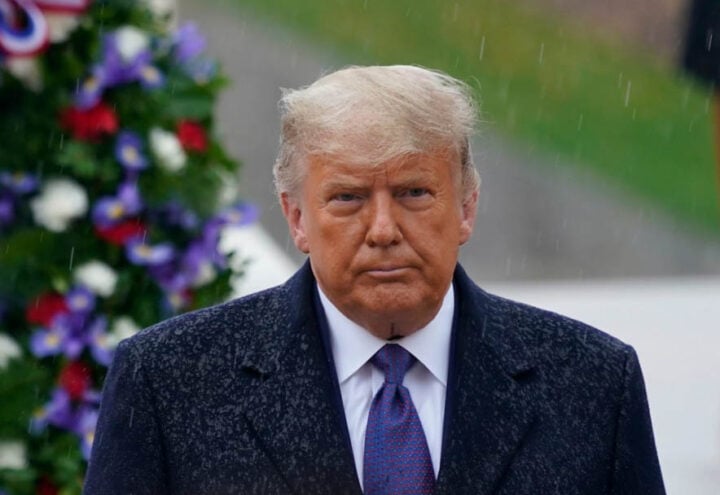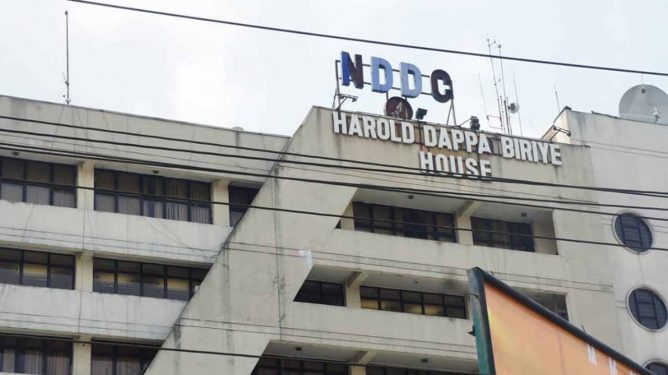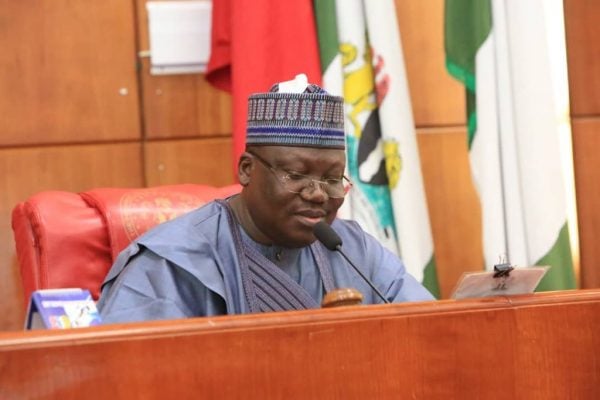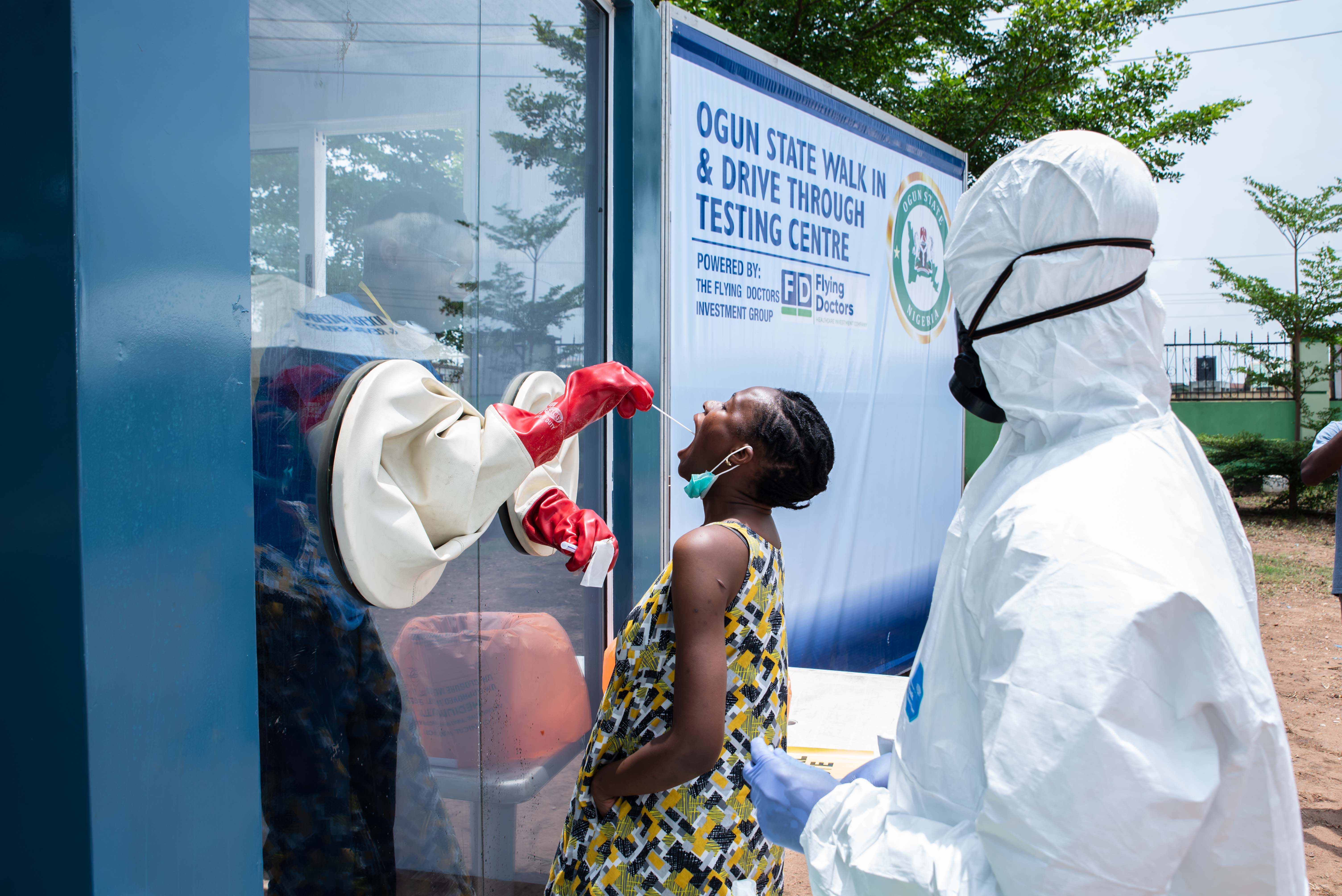There has, over the past two centuries, been a smooth transfer of power from one administration to another in the United States of America since George Washington first occupied the presidency. But with regards to the 2020 presidential elections, something extraordinary happened. The incumbent and soon to be ex-President Donald Trump refused to accept the result of the elections, which declared his opponent, Joe Biden, the winner. Trump alleged fraud and voter irregularities, filed several lawsuits all the way to the Supreme Court almost all of which he lost. For many weeks now, this political saga has played itself out, testing the American system of government. This essay is not intended to criticise or praise Donald Trump but to point out something rather remarkable about the American democratic process and the institutions that sustain it.
The US is an imperfect country, a bag of polarised contradictions, a weird, disturbing and yet strangely wonderful place. A land of the free, yet a land that possibly has the highest rate of incarceration of its citizens in the world. A land of liberty where even while the founding fathers were busy drafting the Declaration of Independence and claiming that they ‘hold these truths to be self-evident that all men are created equal’, they held a large number of their fellow human beings in captive slavery. A materially wealthy nation where some enjoy the highest standards of living in the world yet, amongst its citizens are those whose poverty are so abject that they might as well be resident in the poorest part of the world. A land of great divisions but yet a land of unity: there are divisions on racial lines, on socio-economic lines, on religious lines, on sexual lines, on political ideological lines, on gender lines, on educational lines and many more. The Second Amendment guarantees the freedom of each American citizen to bear arms, but has, consequently, resulted is an annual rate of 35,000-40,000 gun-related homicide. In Africa, particularly Nigeria, there is a supposition that ethnic or tribal divisions are the bane of the progress of these societies. In Nigeria the interpersonal, inter-religious and inter-tribal differences and oppositions are not as great as has been portrayed, but has been exacerbate to damaging degrees. They certainly are not as diverse as the kind of divisions that one finds in the US. Substitute race for tribe in the US and you begin to get some idea of the measure of the depth of the division that runs through the society. These divisions are often so great and yet fragment further to atomistic levels sufficient to create tensions that spill into sporadic violence. But cast an eye to the US and you find divisions just as great, if not greater than those that exist in Africa.
However, the contradictions that are inherent in the US or American uniqueness have been described as ‘American Exceptionalism’, meaning that there is no country on earth like the US. But it is worth noting that the US is a settler country. It did not evolve organically as most nations of the world have done, but was essentially founded on a set of ideas that include freedom, rights and limited government. The state institutions, solidly built and maintained, guarantee those freedoms, rights and the will of the people, all of which allow the US to continue as a corporate going concern that stands in little danger of imminent disintegration. These ideas attracted and continue to attract people from all over the world to settle on a land that was not terra nullius but stolen from its original inhabitants. Nevertheless, it was the amalgamation of diverse peoples, ideas, nationalities, religions, opinions, not to speak of the slave labours of Africans that built America. Were it not for America’s wealth and power, we probably would find no other cause but to describe the US as a Third World country with a fragility veering towards the inevitable prospect of a failed State. But there is something remarkable and indeed exceptional about the US, which at first glance has little to do with Americans themselves but more to do with their founding fathers and the constitution that they created. Perhaps the best way to understand this phenomenon is to approach it through South Dakota.
On the black Hills of South Dakota stand Mount Rushmore out of which the figures of four American Presidents have been carved. These Presidents: Washington, Jefferson, Lincoln and Roosevelt are, arguably, four of America’s greatest Presidents, whose sculpted profiles, huge, towering and imposing (60ft long) look down watchfully at the city below – they might as well be watching over the entire country, like a quiet god-like guiding spirit that oversees everything and reminds Americans what their country stands for. But what is symbolically significant and relevant for this essay is that the representation of these men in granite stone appears to mirror the solid concreteness of the American Constitution that appears at times like a religiously sacrosanct document – the Bible of American democracy, so to speak. These documents are the rocks upon which the US as a nation was built and which, to this day, several centuries afterwards, continues to serve as the protection, the guarantee and defence of the rights of its citizens against the might of the State.
Advertisement
Whether one agrees with Donald Trump or not, likes him and his politics or not, one thing that the recent American election has shown is that his right to test and indeed contest the validity of the outcome of the election was available to him, which he exercised in many different ways and in many different places. This recourse to the courts was afforded him, not by virtue of the fact that he is the most powerful man in the world, but because it is a right guaranteed to him by the Constitution as an individual American citizen. If he were right that the elections had been rigged by fraudulent means, then the courts would, and have heard the cases upon the submission of evidence. We must recall that he nominated three of the current Supreme Court justices and it is therefore easy to suppose or to expect, perhaps, that these three, at least, would return the favour by hearing his case and deciding in his favour. But no such thing happened. No return of favour for favour, no reciprocal back-scratching or favouratism, since each judge remained faithful to the oath that he or she took, an oath not to a man or President but to the Constitution and to the law. Indeed, the court refused to even hear the case that was brought before it.
What the American democratic system has shown is that no man or woman, however great or small, is above the law. The institutions hold fast like a ballast against the turbulence, trials, tribulations and various stresses that assail it from time to time, even with the horrible histories of racial discriminations and other injustices. It is through the same institutions that injustices are corrected, even if some of these institutions created the injustices in the first place, and even if these freedoms have had to be fought for at different points in American history. These then are the checks and balances that put a speed limit or breaks on excessive use of power by any one organ of the State.
In Nigeria, the opposite is the case, hence the problems that beset the country. The Nigerian Constitution is as fragile as the men and women who drafted it. Even where rights have been enshrined in the Constitution and, by extension, in law, it can be ignored at will and by impunity. Indeed, more worrying is the fact that there are those who are literally above the law or to whom the law appears not to apply. The flagrant abuse of power and wanton disregard for the laws, the flouting of rules and regulations has for some time eroded and undermined political and socio-economic progress. The law is tuned into an instrument or a weapon of use or abuse in the hands of individuals, who deploy it at will against their political opponents or against those to whom they disagree. This individualisation of power as a subjective mechanism for political agenda-setting has damaged African politics almost irreparably.
Advertisement
The African leader wields an enormous degree of power, perhaps more potent than that of the President of the United States, if only because whilst the President of the United States remains the most powerful single individual in the world, whose power and decision reaches far and wide, particularly with respect to the future direction of the entire world, his power remains subject to internal intermediate stops, checks and balances. Second, power in America is rather diffuse, divided and distributed among several separate agencies and institutions. Third, ultimate power resides with the people, whose express wishes are final, as has been the case in every presidential election. Thus, the power of the President is never transcendental but immanent, reined in or bounced back like a bad cheque by countervailing agencies when, and if it proves to be excessive. Had Donald Trump been an African leader, his path towards another four years in office would have been assured. But he is an American President and that makes a great deal of difference to this election.
In Africa, however, the leader retains unbridled and unrestraint power, which he (mostly a he) exercises at will and pleasure. But this centralisation or usurpation of power has always been a dangerous thing for any society, producing authoritarianism, totalitarianism, bigmanism, autocratism and demagoguery. This god-like grip on power is not only harmful to society, but also harmful to the leader himself. It may be desirable to possess ultimate power, but this is ultimately a maddening indulgence from which the leader himself becomes a prisoner. Such was the dark fate that turned many Roman Emperors mad, from Caligula (whose barbarity knew no bounds, once declaring that he had the right to do whatever he liked to anyone and even proposing to make his horse a consul) to Nero his nephew, whose insanity was of a different order, the kind that saw him playing the violin while Rome was being consumed by a great conflagration. Thus, Caesar, riding through town, always had a hapless figure tugging at his tunic and reminding him: memento mori, memento mori – you are mortal, you are mortal. We all need someone to tell us the truth and to remind us when we are wrong. No doubt that each individual believes in his or her own truth and rightness but we can, and sometimes are simply wrong and indeed may be working even against our own interests. It is also a healthy state of affairs even for the leader to have checks on his power and to defer to other oversight of state institutions.
It is a sign of maturity and a healthy democratic process that power is divided among different organs of State in order to curb the excesses of each branch of the State. It might be argued that in Nigeria, there are divisions of power – the Executive, Legislature and the Judiciary – but these divisions are abstract or de jure form of divisions rather than a de facto or real kind of division, as each of these organs of state rarely or hardly act as check on the other. No single individual or branch of government possesses all the knowledge or have answers to every problem and the greatness of the United States resides precisely in this sense that a concert of different organisations, working separately but for a collective or shared purpose, is the reason that country has prospered. Yes, Nigeria too has had successful transfer of power from one regime to another since democracy was re-established in 1999, for which it must be applauded. But this is only a start.
There would still be a smooth transfer of power on January 20, 2021. President Donald Trump will leave office on that day, having tried and exhausted every avenue of redress, protest and even incitement to insurrection. The American State has not experienced an assault on its democratic system as that, which a group of Trump supporters launched on its legislative citadel, the Capitol Hill, a few days ago. But as shocking and as historically damaging as this event has been, and its ramifications and reverberations rumble on, the fact is that this too shall pass under the solid bridge that around which the system has been constructed.
Advertisement
That is the enduring nature of the American democratic institutions, which remains solid as the granite stone of Mount Rushmore, which have again proved and prevailed to remind people that no single individual is more powerful than the State, even if that individual is the most powerful individual in the world. This is the irony of the American presidency, an irony that is lost on places like Nigeria. If, therefore, there are three things to take from this recent US election, they are these: institutions, institutions, institutions. Strengthen the institutions of State and various governmental agencies and you begin to stabilise the State itself towards an enduring democratic system that delivers justice and rights for all despite the divisions and disagreements that exist in society, will begin to take shape. Perhaps in future, Nigeria too would have its own Mount Rushmore, where the real Aso would bear the faces of great Nigerian leaders that have shaped that country for the better. But that would only happen after the Nigerian Constitution that guarantees freedoms and rights for every citizen, and ensures that no man or woman is above the law, is itself as solid as a rock.
Dr Apata is a writer and researcher based in London.
Advertisement
Views expressed by contributors are strictly personal and not of TheCable.
